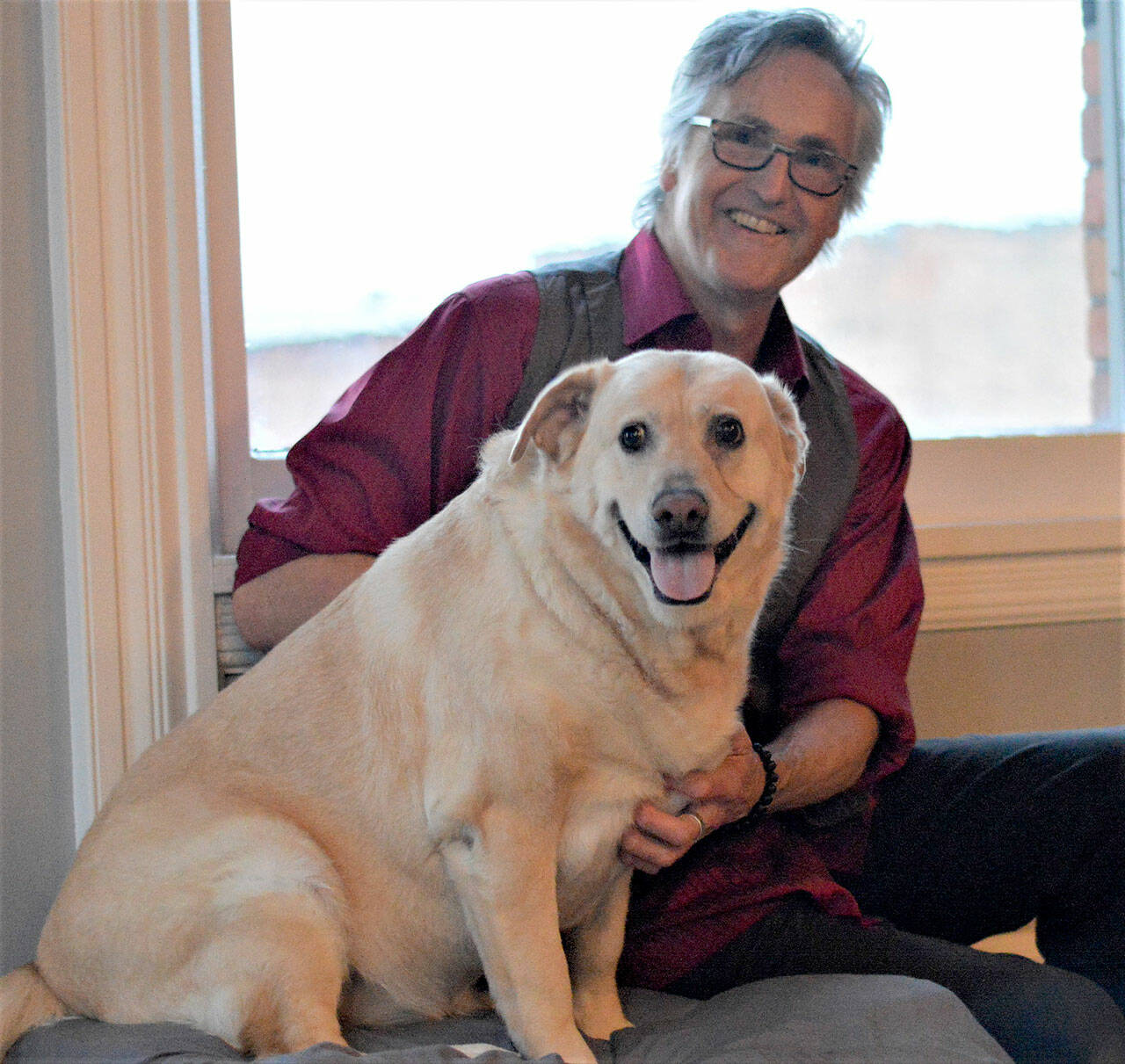Like a wild creek in early spring, “To Crack the World Open: Solitude, Alaska and a Dog Named Woody” carried me swiftly into Ward Serrill’s true story. The author, well-known for his work in the documentary film medium, tells a ripping wilderness tale — and cracks open his soul too.
We first meet Serrill in his three-piece suit, a 24-year-old accountant in 1980s Seattle. But this is untenable. Next thing we know, our guy is heading north on the Alaska State Ferry to arrive in Ketchikan, where he moves into an abandoned cabin. Woody the yellow Labrador retriever is his sidekick.
“His dog bible had within it one commandment: Go Outside … He did not care about the temperature, wind speed, or rains lashing against the cabin. There were times I didn’t want to move from the relative warmth of our abode into a wet-sopped day. But in Southeast Alaska, if you let the rain dictate what you did, it was no place for you. So, begrudgingly, outfitted in rain gear and boots, I followed Woody out the door and into the deluge.”
The deluge of life, that is. Serrill takes us on his hero’s journey. The reception has been enthusiastic: The author’s two readings at the Starlight Room this Saturday and Sunday sold out fast. Fortunately, “To Crack the World Open” can be purchased from any independent bookstore, including Imprint Books in Port Townsend.
Serrill’s saga continues with him finding work as controller at Cape Fox, an Alaska Native village corporation in Saxman, south of Ketchikan. Outside the office, he’s treated not just as an outcast, but as though he’s invisible. When village matriarch Delores Strong sees him coming, she pointedly turns her back — and this “bit me to the core,” Serrill writes.
Yet he and Woody keep on keeping on. The Native families do slowly accept him. But Serrill has his inner demons to wrangle. These have to do with his youth, complicated by a mother and father who were ill-equipped to be parents.
During an online talk hosted earlier this month by the Port Townsend Library, Serrill spoke about the experience of writing his memoir. He thought he’d write about his dog Woody, but his dad kept showing up. The father-son relationship, not a peaceful one, evidently needed resolving in these pages.
“If you’re not ready to go where you’re most vulnerable and uncomfortable, memoir is not for you,” Serrill said.
The “Solitude, Alaska and a Dog Named Woody” of the title are the writer’s three healing agents. They wield their power as he hikes, plays and then, one Milky Way-lit evening, goes out to the beach near his cabin.
On this night, he beholds a phosphorescent bay. As Serrill tosses a rock in, “green, glittering fireworks exploded in the dark water,” he writes. “Woody waded in and stood, knee-deep, looking down at air bubbles rising up his forelegs like tiny glowing balloons.”
Into the kayak they go; “we paddled away fast, leaving behind spinning galaxies with each stroke. And then, as if the miracles would never cease, the northern lights appeared in the sky, neon green and shimmering.”
We readers benefit from Serrill’s nerve when it comes to facing the sadnesses of his childhood. Surrounded by the splendor of Alaska’s forests and waterways, he plunges in, like Woody. In their book, they swim through the choppy waves to emerge on the shore, cleansed.
________
Jefferson County senior reporter Diane Urbani de la Paz can be reached at 360-417-3509 or durbanidelapaz@ peninsuladailynews.com. Her column runs the first and third Wednesdays of the month; the next will be published Dec. 1.

